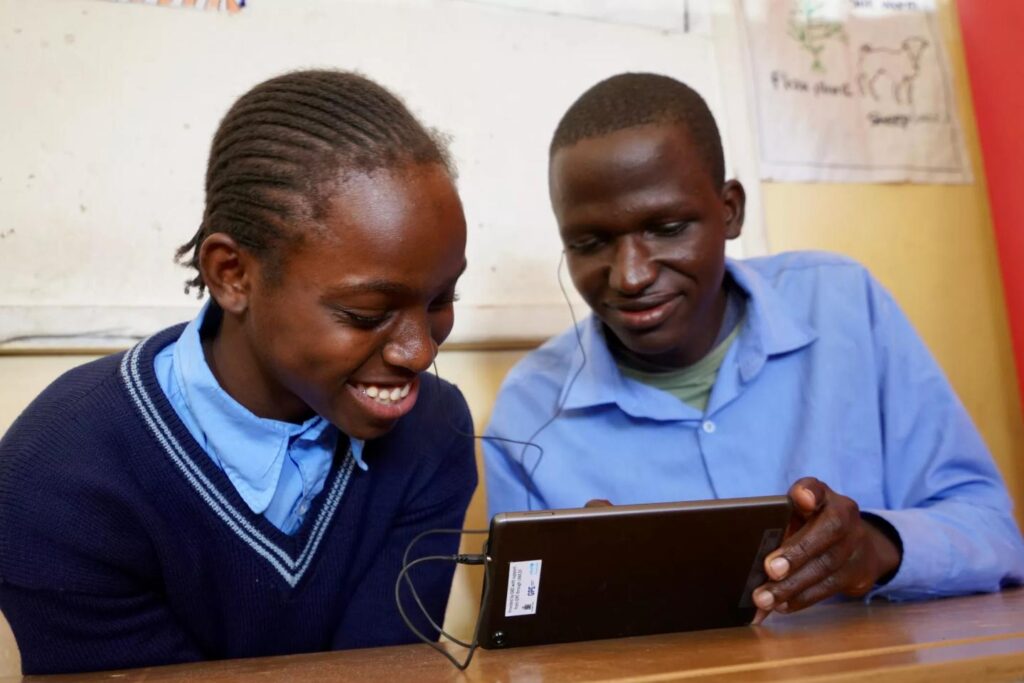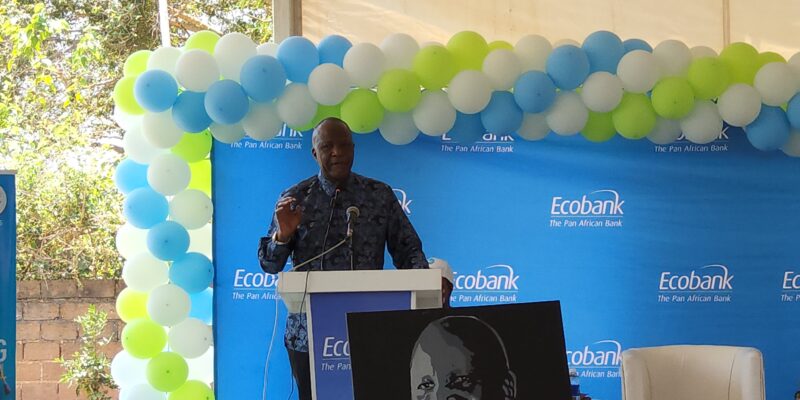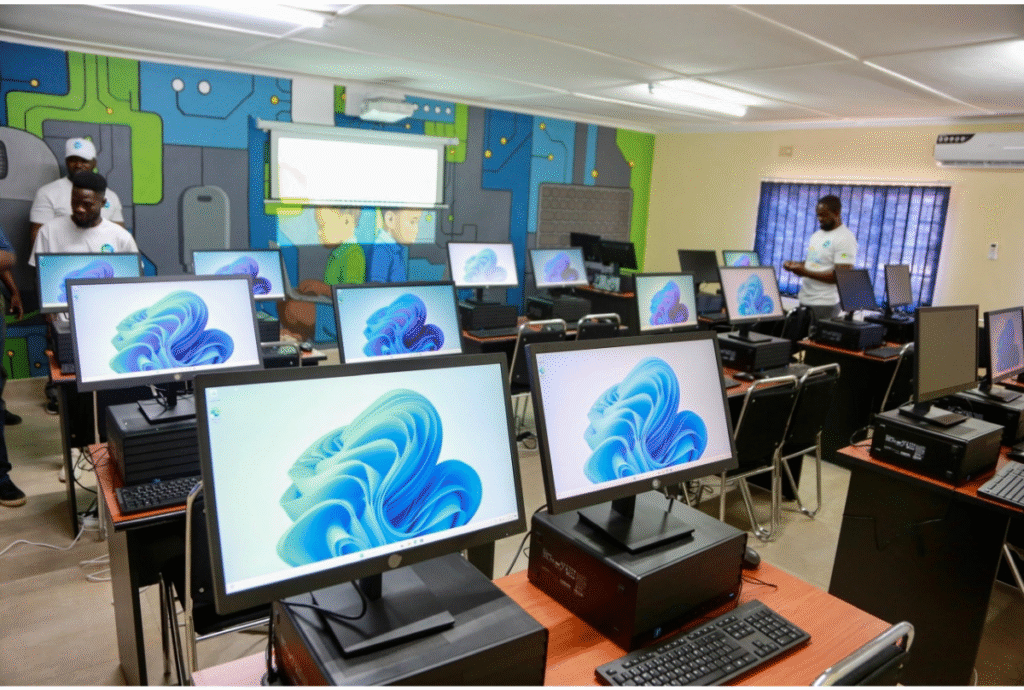In a significant move toward inclusive, equitable education, Zambia is witnessing a powerful collaboration between Ecobank Zambia and the Zambia Information and Communications Technology Authority (ZICTA). Their joint effort is centred on equipping differently abled students with technological tools to bridge learning gaps. At the heart of this endeavour is the refurbishment of the ICT laboratory at the University Teaching Hospital (UTH) Special School—part of Ecobank’s Transforming Africa Through Education campaign.
The ceremony took place under the watchful eyes of government officials, including the Minister of Technology and Science, Hon. Felix Mutati, who emphasised that “no child should be left behind,” recognising that the challenge is not with learners but with systems that must adapt to diverse abilities. The refurbished lab—outfitted with computers, AI-enabled platforms, and assistive tech—is not just hardware; it symbolises Zambia’s commitment to redefining what education can be when inclusivity becomes central.

Table of Contents
The Details: What Has Been Delivered
Ecobank’s three-year commitment has borne concrete outcomes. The bank has invested K700,000 for the refurbishment, which includes not only an ICT lab but also classroom furniture and essential tech such as a projector for UTH Special School.
Specifically, 20 computers have already been donated by Ecobank. In addition, ZICTA has pledged another 10 computers and support for AI-enabled learning platforms that will help tailor lessons to individual students’ learning needs. Assistive technologies will also play a major role for children with disabilities.
In a further show of solidarity, the Harvest Foundation (the social impact arm of the Harvest Group of Companies) contributed by giving 256 school bags filled with exercise books, pens, and pencils. These are directed at supporting learners who are vulnerable and differently abled, making sure that educational access is not only digital but material as well.

Why This Matters: From “Special Needs” to “Differentiated Abilities”
At the event marking Ecobank Day 2025, the conversation shifted in framing educational inclusion. The language moved away from terming children as having “special needs” toward recognising “differentiated abilities”. This is more than semantics—it changes how systems, teachers, policy makers and communities view and support learners.
The new laboratory, with 30 computers now available and AI learning systems, gives differently abled students access to interactive, adaptive learning paths. Rather than trying to fit every student into one mould, the tools allow for customised support, helping learners with physical, sensory, or cognitive disabilities to engage more meaningfully with lessons.
Minister Mutati reiterated that Zambia’s goal is to build an education system that recognises potential in all learners, not just those who conform to traditional expectations. This underscores a wider policy direction: inclusive education is not a side project, but central to Zambia’s future.
The Road Ahead: Impacts, Challenges, and Sustainability
While the lab upgrade and donations are a major boost, sustainability remains critical. Ensuring maintenance of hardware, continuous support for assistive software, training for teachers in how to use AI-based platforms, and periodic updating of tools will be decisive for long-term impact. Also, scale is important: replicating this model in other special schools across Zambia will be necessary to ensure that this becomes a widespread norm rather than an isolated success.
For Ecobank, celebrating 40 years in Africa while marking more than a decade of community work through its Foundation shows intention and legacy. Their investment in this project reflects a belief that digital literacy and inclusion are foundational to societal transformation. For ZICTA and the government, the joint initiative represents more than charity—it’s a partnership that could define the direction of Zambia’s education system in a digital era.
If effectively nurtured, this initiative can empower differently abled learners to contribute to national development, reduce marginalisation, and help Zambia move closer to the UN’s Sustainable Development Goal that ensures inclusive and equitable quality education for all.

Conclusion
The partnership between Ecobank, ZICTA, the Harvest Foundation, and the Zambian government is a strong signal that inclusive, tech-enabled education is no longer an ideal on paper—it’s becoming a lived reality. By shifting the public mindset, investing in infrastructure, and prioritising learners whose needs are often overlooked, Zambia is charting a path that many will be watching. Ensuring that this momentum continues—through adequate funding, training, policy support and scaling—is how the nation will truly fulfil its promise: that no learner, regardless of ability, is left behind.
Join Our Social Media Channels:
WhatsApp: NaijaEyes
Facebook: NaijaEyes
Twitter: NaijaEyes
Instagram: NaijaEyes
TikTok: NaijaEyes













![Mr Macaroni Drops Blistering Remark: ‘APC Filled with Most Corrupt People’ as He Slams Tinubu’s Controversial Pardon for Criminals=]] Mr Macaroni](https://naijaeyesblog.com/wp-content/uploads/2025/03/Mr-Macaroni-1-1-180x135.avif)

![Chaos Erupts in Abuja Hotel as BBNaija Star Phyna Sparks Fierce Scene Over Alleged N200,000 Dispute [VIDEO] Phyna](https://naijaeyesblog.com/wp-content/uploads/2024/11/A-Picture-of-Phyna-BBNaija-180x135.jpg)
























